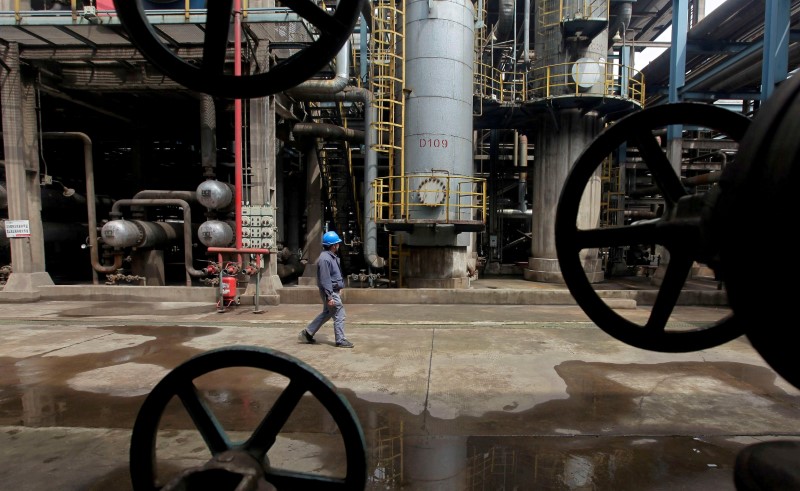Street Calls of the Week
By Geoffrey Smith
Investing.com --
By Geoffrey Smith
Investing.com -- Crude oil prices edged lower in relatively quiet trade on Monday, against the backdrop of a U.S. holiday and data on Friday suggesting that the market has fully priced in a rebound in demand once the current wave of Covid-19 ends in the northern hemisphere.
By 9 AM ET (1400 GMT), the benchmark U.S. crude futures contract was down 0.2% at $83.11 a barrel, while Brent, the global benchmark, was down 0.3% at $85.78 a barrel.
U.S. gasoline futures were likewise down 0.1% at $2.4158 a gallon.
Both markers are close to seven-year highs after a vigoroury rally in the last couple of weeks which has been driven largely by fears that the world's biggest oil producers are badly placed to raise output to meet demand from a recovering global economy. The Organization of Petroleum Exporting Countries in particular is struggling to deliver on its promises to raise output due to past under-investment and poor management, while U.S. shale companies are also more inclined to concentrate on generating cash flow rather than invest in producing more.
However, there were signs over the last few days that the rally may have exhausted itself in the near term. Positioning data from the U.S. Commodity Futures Trading Commission show that the ratio of bullish long contracts to bearish short ones is now over 6 times, a level that suggests a rebalancing is due. Only a month ago, that multiple was still less than 4 times.
Additionally, at least one of the world's short-term supply problems is easing. Libya, an OPEC member that isn't bound by the current output quota agreement, has now restored its daily production to 1.2 million barrels a day, the National Oil Company said in a statement on Monday. That's an increase of 500,000 b/d from earlier in the month.
Ole Hansen, head of commodity research at Saxo Bank, said via Twitter (NYSE:TWTR) that technical factors look to be turning against Brent in the short term. A renewed failure to break through the three-year high of $86.75 a barrel, which was hit in October and again last week, "could lead to a correction back to $80," Hansen said via Twitter.
Earlier, the market had been left unmoved by figures out of China showing that industrial production had been stronger than expected in December. Attention remains focused for now on China's management of zero-Covid strategy, which faces its sternest challenge yet after the discovery of locally-transmitted Omicron variant Covid in the capital Beijing. China has typically reacted to any sign of new outbreaks with harsh, demand-sapping restrictions on mobility, and failure to control the virus now could have serious implications for the hosting of the Winter Olympics, which begin in Beijing in less than a month.
